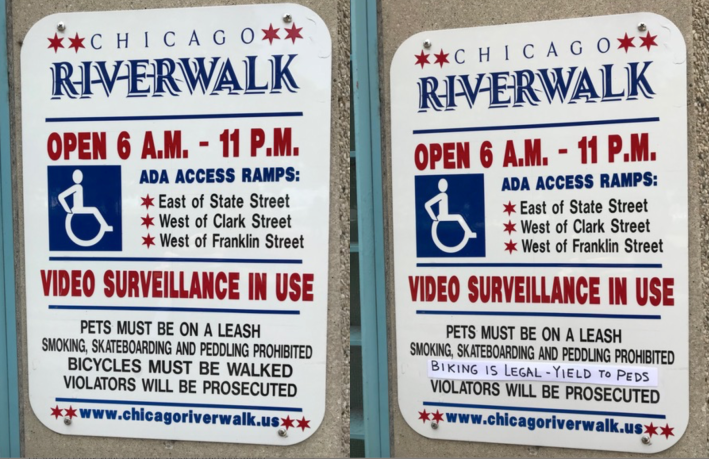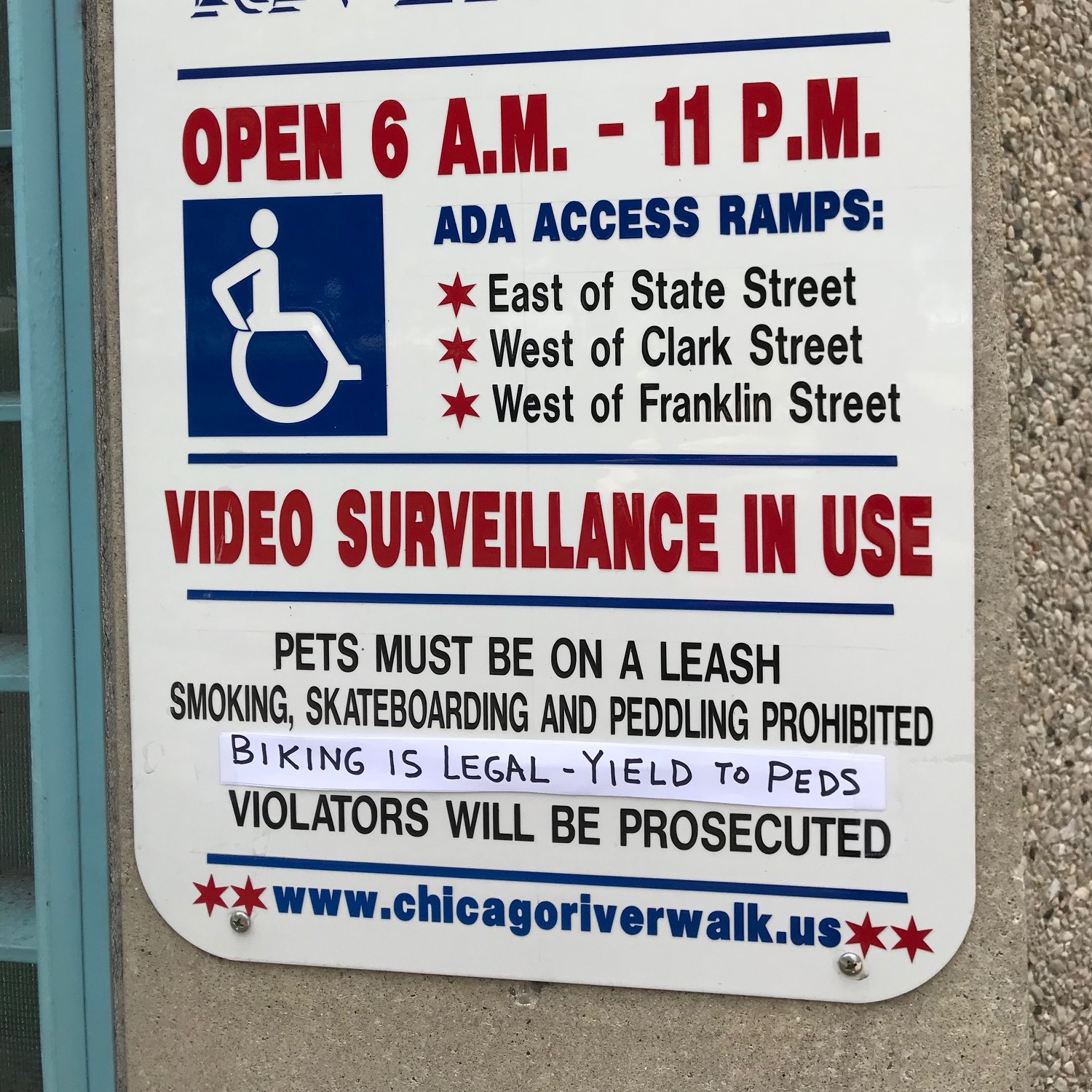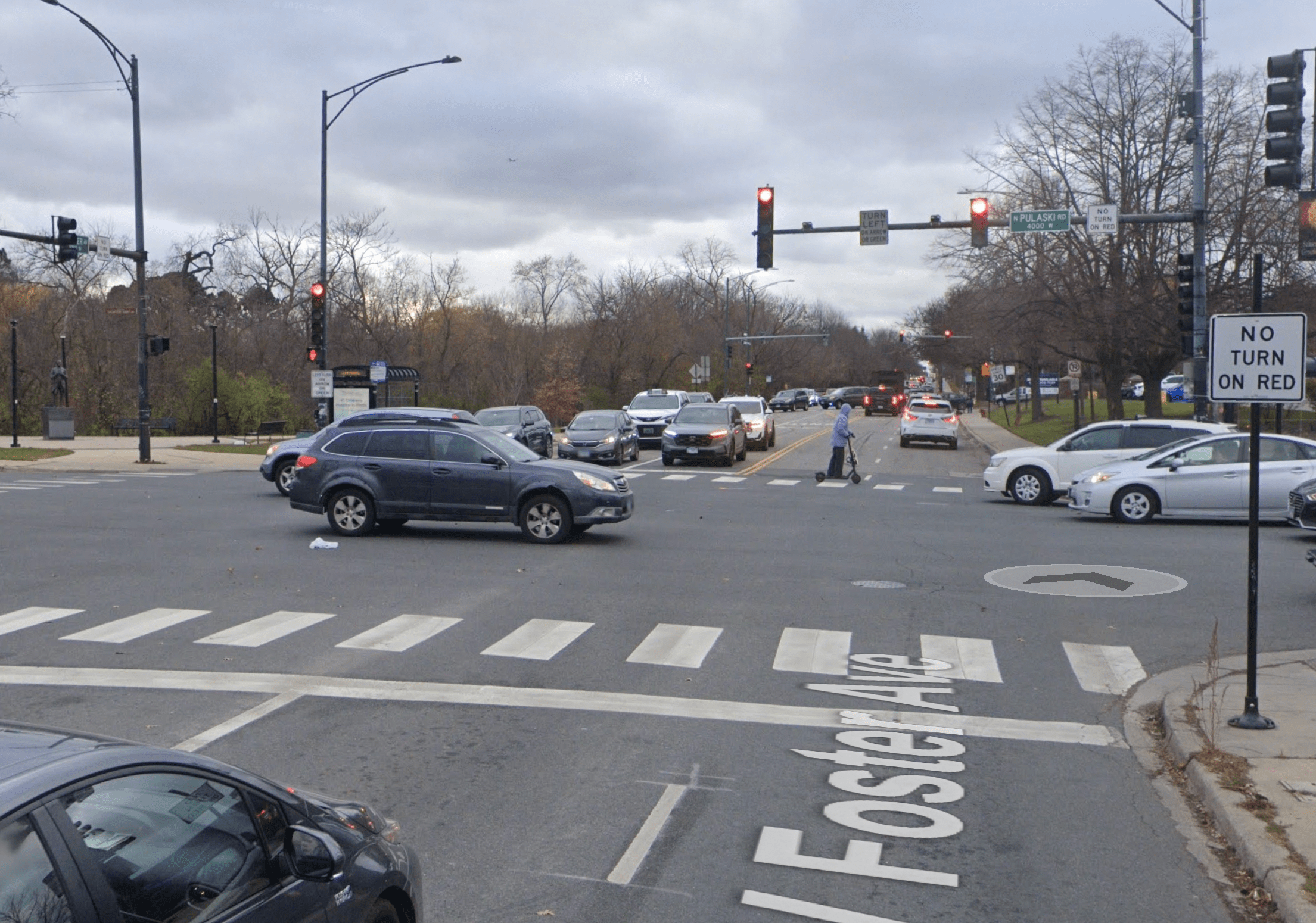Last week I took a bicycle ride on the Chicago Riverwalk wearing a t-shirt I made explaining that it's still legal to bike there. “Hi there!” it reads. “Despite what the signs say, Alderman [Brendan] Reilly’s ordinance to ban biking on the riverwalk (O2018-7034) never passed, so it’s still legal. Thank you!”
In case you're new to the issue, the newer section of the riverwalk, constructed a few years ago, was originally promoted and funded as a cycling facility, and it appears as an off-street trail on the city’s bike map. And although Reilly introduced the ordinance last September, it never became law. However, shortly after he proposed the ban, the city posted signs at the entrances to the facility threatening that bike riders will be prosecuted, and security guards routinely flag down cyclists to tell them they can't ride on the path.
My t-shirt stunt got Reilly's attention.
What do you think would be the best policy towards biking on the Chicago Riverwalk *from May to October in the cafe zone between State Street and Clark Street*? @AldReilly @activetrans @chiriverwalk
— Streetsblog Chicago (@streetsblogchi) May 24, 2019
True to his word, Reilly took some action on the ban this morning at Lori Lightfoot's first City Council meeting as mayor. According to the City Clerk's office, a resolution was introduced today stating that no final action will be taken on any ordinances that were introduced prior to Lightfoot's inauguration that are considered "fail to pass," with a few exceptions. Therefore, Reilly reintroduced the bike ban to the Pedestrian and Traffic Safety Committee as a new ordinance.
This afternoon I stopped by the riverwalk to engage in a little more IRL trolling, shooting a photo of what the signs at the entrances to the promenade should say, in light of current laws.

When I rode the length of the riverwalk this afternoon, I was flagged down twice by security guards who told me I wasn't allowed to ride. Once again, I referred them to my t-shirt for an explanation of why that wasn't the case. In general, the guards who have confronted me on the path have been polite, or even cordial -- they're just doing their job, after all. Today the guards actually smiled and chuckled at my shirt. "Well, I can't stop you if you're going to ride," said one of them.
In case you're wondering, I am aware that there's an issue of white privilege at play with my t-shirt stunt and my promise to disobey Reilly's ordinance if it passes. While I've been unfairly arrested and jailed by downtown police before, at no point in the process was I afraid for my physical safety. Would I feel as comfortable risking arrest if I was a person of color? Probably not.
However, the Chicago Police Department's past bike enforcement practices include writing exponentially more tickets in African-American neighborhoods as majority-white ones, and citing otherwise-law-abiding Black cyclists for riding on downtown sidewalks roughly three times as often as their white counterparts. That strongly suggests that if Reilly's riverwalk bike ban passes, officers will be more likely to target African Americans for violating it, potentially putting them in harm's way.
So white privilege was a factor in why I felt relatively at-ease flouting the de-facto riverwalk bike ban. But I believe that if I can use that privilege to call attention to this issue and help prevent Reilly's ordinance from passing, I'm pushing back at an unfair law that would disproportionately impact people of color.
On the bright side, lately the Active Transportation Alliance has been brainstorming with Ross Barney Architects and Friends of Downtown on a solution for a low-stress bikeway on Upper Wacker Driver that would provide a safe alternative to the riverwalk. An advisory committee of more than twenty public and private sector entities, including Reilly’s office, is also involved. This summer they’ll be collecting data and input. If you’d like to get involved with the project, contact Steve Simmons, steve@activetrans.org, 312-216-0472.




